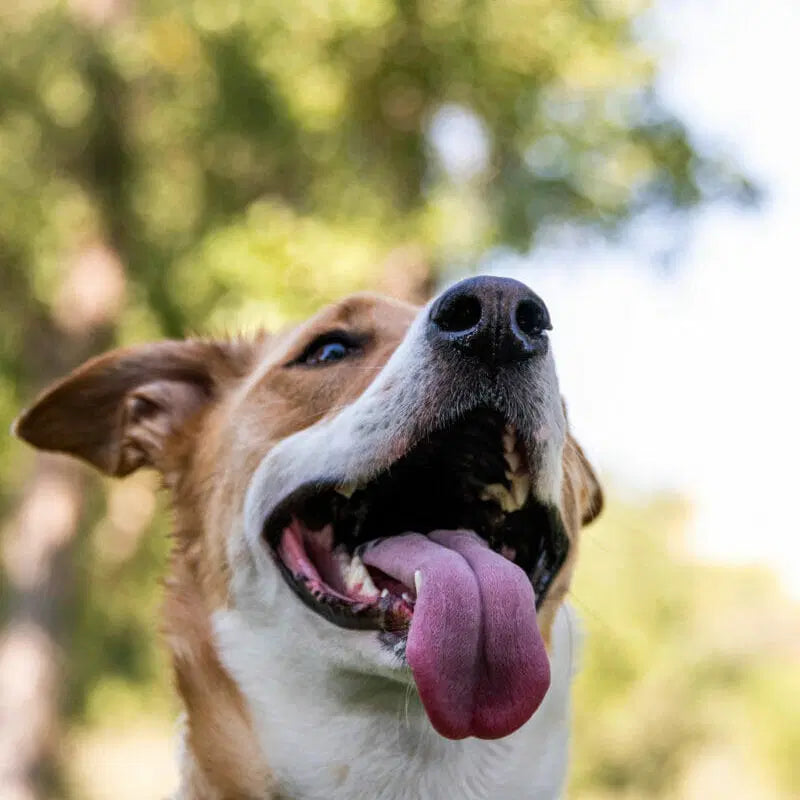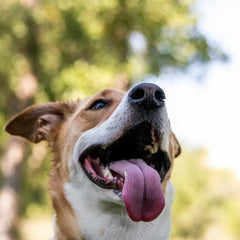Bad breath in dogs is a common issue faced by pet owners in the UK. It is crucial to delve into the various aspects that contribute to this issue to ensure the overall well-being of your canine companion. In this detailed guide, we will explore the underlying causes and preventive measures that dog owners can undertake.
Dental Health
Understanding the dental health of your dog can offer a clear insight into the potential causes of bad breath.
Dental Hygiene
- Tartar Build-Up: This is a significant contributor to bad breath. Regular dental check-ups can help in addressing this issue.
- Gingivitis: Inflammation of the gums can lead to persistent bad breath.
Dental Diseases
- Periodontal Disease: This is a common occurrence in older dogs, where the support of the teeth is affected, leading to bad breath.
- Tooth Abscess: An infected tooth can produce a foul smell, signaling the need for immediate veterinary intervention.
Dietary Causes
Examining what goes into your dog's diet is pivotal in controlling the issue of bad breath.
Food Choices
- Low-Quality Dog Food: Often, low-quality dog food can lead to digestive issues, reflecting in the dog's breath.
- Human Food: Sometimes, the remnants of human food consumed by dogs can lead to bad breath.
Inappropriate Eating Habits
- Coprophagia: This refers to the consumption of faeces, which is a direct cause of bad breath.
- Decomposed Food: Consumption of stale or decomposed food can result in bad breath.
Medical Conditions
Apart from dental issues, several medical conditions can be at the root of bad breath in dogs.
Digestive Issues
- Gastrointestinal Problems: Issues in the digestive tract can often lead to bad breath.
- Liver Problems: Liver issues can cause a distinctively foul breath in dogs.
Respiratory Conditions
- Sinusitis: Inflammation in the sinus region can cause bad breath.
- Pneumonia: Respiratory infections such as pneumonia can cause bad breath as well.

Treatment and Prevention
Having identified the potential causes, let us now focus on the preventive measures and treatments available.
Home Care
- Regular Dental Cleaning: Using dog-friendly toothpaste and brushes for daily cleaning can prevent bad breath.
- Dental Chews: These are available in the UK market and help in reducing tartar build-up.
Professional Interventions
- Dental Cleaning by Vet: Regular professional cleaning can be a preventive measure.
- Oral Surgery: In severe cases, surgeries might be required to address the underlying dental issues.
Consulting Your Vet
When home remedies fail, it is time to consult your vet to find a solution to the problem of bad breath in dogs.
When to See a Vet
- Persistent Bad Breath: If bad breath persists despite regular cleaning, it is time to consult a vet.
- Signs of Illness: If bad breath is accompanied by other signs of illness, a vet consultation is necessary.
What to Discuss with Your Vet
- Dietary Choices: Discuss the dietary regimen of your dog with the vet to find solutions.
- Medical History: Sharing the medical history of your dog can offer the vet a comprehensive understanding of the potential causes of bad breath.
FAQs
Q: Can bad breath in dogs indicate serious health issues?
A: Yes, persistent bad breath can sometimes be a sign of underlying serious health issues such as kidney problems or diabetes.
Q: How often should I clean my dog's teeth?
A: It is recommended to clean your dog's teeth daily or at least several times a week to maintain dental health.
Q: Can I use human toothpaste to clean my dog's teeth?
A: No, human toothpaste can be toxic to dogs. Always use a toothpaste specifically designed for dogs.
Conclusion
Bad breath in dogs is a prevalent issue in the UK, often a result of dental issues or underlying health problems. Being aware of the potential causes and adopting a proactive approach towards your dog's dental health can go a long way in preventing this issue. Consultation with a vet should be your go-to solution when you notice persistent bad breath in your dog. As responsible pet owners, let us ensure the freshness in our dog's breath, reflective of their vibrant health.




